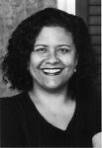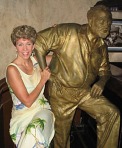 ‘Tis the season not only for a variety of holidays, for snow and ice (even in Tacoma), for crowded airports and malls, and for final-exams and long essays, but also for writing letters of recommendation for graduate school.
‘Tis the season not only for a variety of holidays, for snow and ice (even in Tacoma), for crowded airports and malls, and for final-exams and long essays, but also for writing letters of recommendation for graduate school.
Most of these letters are due in December or January, so precisely when professors are reading lots of stories, poems, essays, and exams, they also need to carve out time to write these letters and fill out the forms. C’est la vie.
But just what are the graduate-school options for English majors? They’re several; you might even say they’re abundant.
The big-commitment option is to pursue a Ph.D. in English–although “English” these days can mean the study of literature & criticism, of rhetoric & composition, and even of creative writing, although the equivlaent degree in creative writing is a D.A., usually–a doctor of arts.
The commitment’s big because getting a Ph.D. usually takes about 7 years, sometimes longer. There are courses and preliminary exams to take, then more courses, then foreign-language exams, then qualifying exams, and finally a dissertation–and a dissertation-defense. Meanwhile, you will have started teaching–first-year composition, for example. Once you have a Ph.D. in hand, then you try to find a teaching job, and that usually means being willing to move almost anywhere in the U.S. And the competition is stiff. Tenure-line openings usually attract hundreds of applications.
On the M.A. and/or M.F.A. side of things, the commitment is usually two years, although you can earn an M.A.T. in about a year, and this degree will set you up to teach at the secondary level.
An M.F.A. in creative writing is considered a “terminal” degree in the sense that it represents a level of achievement in writing that is roughly equivalent to the achievement represented by a dissertation. Consequently, an M.F.A. (Master of Fine Arts) is considered more worthy than an M.A. in creative writing.
It is not uncommon now to earn an M.F.A. in creative writing and then pursue a Ph.D. in literature. It is by no means the usual route, but it’s a viable one, and it makes the person a more versatile job-candidate, particularly for jobs than stress teaching as much as or more than research.
But there are also all kinds of Masters programs in journalism, publishing, and editing. Some of our graduates have also earned M.A.’s in non-for-profit management, public relations, and curatorial work (the kind of work that goes on at museums and auction houses, for instance).
Qualifications for graduate work vary, but the higher your G.P.A. (in general and in English), the better. Many programs require applicants to take the GRE, the graduate equivalent of the SAT. Most if not all M.F.A. programs require you to submit a portfolio of work. And almost all graduate programs require three letters of recommendation. The recommendation-process has become a little more streamlined insofar as about 3/4 of the programs now use electronic recommendations.
There’s really no easy way to decide which school to apply to once you’ve decided to go to graduate school. Counterintuitively, perhaps, many of the best M.F.A. programs are not at the same institutions that offer highly regarded Ph.D.’s in English. For example, Eastern Washington University and the University of Montana have well regarded M.F.A. programs. Stanford University is highly regarded in both areas.
But basically, you just have to do your homework and patiently educate yourself about different programs, how competitive they are, what the faculty is like, what fellowships & scholarships (and teaching-assistantships) are available, and what the region is like. If you’re going to earn a Ph.D., after all, you’ll be living in that city or town for the better part of a decade.
One tip that’s probably still very helpful is that if you’re aiming to earn a Ph.D. in literature, work on developing your ability to read one or more foreign languages, and do this sooner rather than later. The quicker you can get the foreign-language exams out of the way, the better, and you don’t have to spend time taking basic language classes while in graduate school. Most programs still require one or two foreign languages, such as Latin, Greek, Spanish, German, or French.
And do try to give your recommenders plenty of lead-time to write the letters–more than a month, for example. However, don’t be shy about reminding your recommenders of deadlines once they’ve agreed to write.
If you’re not headed to graduate school immediately after earning your B.A. in English, don’t worry; you’re part of a vast majority. Most students wait at least a year to pursue graduate work (if indeed they choose this path), and in most cases, this choice makes a great deal of sense. Of those who go immediately to graduate school, most pursue the Masters in Teaching and intend to teach high school .
.
 http://voices.washingtonpost.com/inauguration-watch/2008/12/inaugural_poet_selected_elizab.html
http://voices.washingtonpost.com/inauguration-watch/2008/12/inaugural_poet_selected_elizab.html
 ‘Tis the season not only for a variety of holidays, for snow and ice (even in Tacoma), for crowded airports and malls, and for final-exams and long essays, but also for writing letters of recommendation for graduate school.
‘Tis the season not only for a variety of holidays, for snow and ice (even in Tacoma), for crowded airports and malls, and for final-exams and long essays, but also for writing letters of recommendation for graduate school.  .
. Assume that a miracle occurs and that you find the time to read a novel during the semester-break. After establising this premise, I asked a few colleagues in English and one in Political Science to recommend one novel, and here is the list of recommendations so far:
Assume that a miracle occurs and that you find the time to read a novel during the semester-break. After establising this premise, I asked a few colleagues in English and one in Political Science to recommend one novel, and here is the list of recommendations so far: The Fall 2008 issue of Puget Sound’s venerable literary magazine, Crosscurrents, will make its debut this evening at 5:30 in Wheelock Student Center. The festivities include an open-microphone reading, so bring a poem to read to the assembled crowd.
The Fall 2008 issue of Puget Sound’s venerable literary magazine, Crosscurrents, will make its debut this evening at 5:30 in Wheelock Student Center. The festivities include an open-microphone reading, so bring a poem to read to the assembled crowd. The English Department’s own Ann Putnam, who teaches classes in Honors, writing and rhetoric, Hemingway, and creative writing (short fiction), among other subjects, has completed a memoir, Full Moon at Noon Tide: A Daughter’s Last Goodbye. The book will be published in the Fall of 2009 by the Southern Methodist University Press. Warmest congratulations to Ann!
The English Department’s own Ann Putnam, who teaches classes in Honors, writing and rhetoric, Hemingway, and creative writing (short fiction), among other subjects, has completed a memoir, Full Moon at Noon Tide: A Daughter’s Last Goodbye. The book will be published in the Fall of 2009 by the Southern Methodist University Press. Warmest congratulations to Ann! City Arts Magazine in Tacoma recently published an article on the department’s own Professor William Kupinse. The article discussed Bill’s organizing-work as the Poet Laureate of Tacoma, as well as his poetry. The author, Tom Llewellyn, writes, “Tacoma’s new poet laureate, William Kupinse, a James Spader look-alike, lights a fire under the poetry scene and rallies audiences Seattle poets would kill for.” City Arts Magazine is widely available around town and on campus, and it also has its own web site. Congratulations to Professor Kupinse!
City Arts Magazine in Tacoma recently published an article on the department’s own Professor William Kupinse. The article discussed Bill’s organizing-work as the Poet Laureate of Tacoma, as well as his poetry. The author, Tom Llewellyn, writes, “Tacoma’s new poet laureate, William Kupinse, a James Spader look-alike, lights a fire under the poetry scene and rallies audiences Seattle poets would kill for.” City Arts Magazine is widely available around town and on campus, and it also has its own web site. Congratulations to Professor Kupinse!